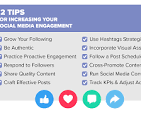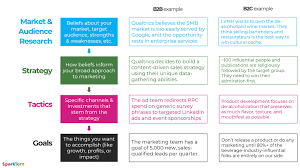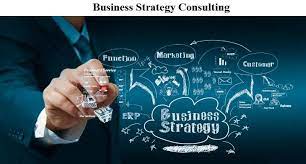Unlocking Success: The Dynamic Duo of Digital Marketing and Content Creation
The Power of Digital Marketing and Content Creation
In today’s digital age, the role of digital marketing and content creation has become more crucial than ever. With the rise of online platforms and social media, businesses are constantly seeking innovative ways to engage with their target audience and stand out in a crowded marketplace.
Digital marketing encompasses a wide range of strategies and techniques aimed at promoting products or services through digital channels such as websites, social media, email, search engines, and more. It allows businesses to reach a global audience, track performance in real-time, and tailor their messaging to specific demographics.
One key aspect of successful digital marketing is compelling content creation. High-quality, relevant content is essential for attracting and retaining customers. Content creators play a vital role in crafting engaging stories, videos, images, and other multimedia assets that resonate with audiences and drive brand awareness.
Content creators leverage their creativity and storytelling skills to develop content that educates, entertains, or inspires viewers. Whether it’s creating blog posts, social media campaigns, infographics, podcasts, or videos, content creators help businesses connect with their audience on a personal level.
Furthermore, effective content creation is essential for improving search engine visibility through search engine optimization (SEO). By incorporating relevant keywords and creating valuable content that addresses users’ needs and interests, businesses can improve their ranking on search engine results pages (SERPs) and attract organic traffic to their website.
Overall, the synergy between digital marketing and content creation is undeniable. By combining strategic digital marketing initiatives with compelling content creation efforts, businesses can enhance brand visibility, engage with their target audience effectively, drive website traffic, generate leads, and ultimately increase conversions.
As technology continues to evolve rapidly and consumer preferences shift towards online platforms, investing in digital marketing strategies and prioritising high-quality content creation will be essential for businesses looking to thrive in the competitive digital landscape.
Understanding Digital Marketing and the Role of Content Creators: Key FAQs
- What is digital marketing and content creator?
- What is a content creator in marketing?
- How do I become a digital marketing content creator?
- What does a digital content creator do?
- What is content creation in digital marketing?
- What is digital creator and content creator?
What is digital marketing and content creator?
Digital marketing encompasses a broad range of strategies and techniques used to promote products or services through digital channels such as websites, social media, email, search engines, and more. It involves leveraging online platforms to reach a global audience, track performance in real-time, and tailor messaging to specific demographics. On the other hand, a content creator is an individual responsible for crafting engaging stories, videos, images, and other multimedia assets that resonate with audiences and drive brand awareness. Content creators play a pivotal role in developing high-quality, relevant content that educates, entertains, or inspires viewers across various digital platforms. Together, digital marketing and content creation form a powerful synergy that helps businesses connect with their target audience effectively in today’s competitive online landscape.
What is a content creator in marketing?
In the realm of marketing, a content creator plays a pivotal role in crafting compelling and engaging content across various digital platforms. A content creator in marketing is responsible for conceptualising, developing, and producing valuable and relevant content that resonates with the target audience. They leverage their creative skills to craft stories, visuals, videos, and other multimedia assets that effectively communicate a brand’s message and value proposition. Through strategic content creation, content creators help businesses enhance brand awareness, drive engagement, attract new customers, and ultimately contribute to the overall success of digital marketing campaigns.
How do I become a digital marketing content creator?
To become a digital marketing content creator, it is essential to have a blend of creativity, strategic thinking, and technical skills. Start by gaining a solid understanding of digital marketing principles and content creation techniques through online courses, workshops, or self-study. Develop your writing, graphic design, video editing, and social media management skills to create engaging and impactful content. Build a strong online presence by creating a portfolio showcasing your work and demonstrating your expertise in various content formats. Network with industry professionals, seek mentorship opportunities, and stay updated on the latest trends in digital marketing to enhance your skills and stand out as a successful digital marketing content creator.
What does a digital content creator do?
A digital content creator plays a pivotal role in crafting engaging and relevant content across various online platforms to attract and retain audiences. Their responsibilities typically include conceptualising, producing, and distributing multimedia content such as articles, videos, social media posts, infographics, and more. They leverage their creativity and storytelling skills to communicate brand messages effectively and connect with target audiences. Digital content creators also often collaborate with marketing teams to develop content strategies that align with business objectives and engage users through compelling storytelling techniques. Ultimately, their work aims to enhance brand visibility, drive website traffic, increase audience engagement, and ultimately contribute to the overall success of digital marketing campaigns.
What is content creation in digital marketing?
Content creation in digital marketing refers to the process of developing and curating engaging and valuable content to attract, inform, and engage with a target audience online. It involves creating various types of multimedia content, such as blog posts, social media posts, videos, infographics, podcasts, and more, that are tailored to resonate with the specific needs and interests of the audience. Effective content creation aims to build brand awareness, drive website traffic, enhance search engine visibility through SEO strategies, establish thought leadership in the industry, and ultimately drive conversions. By crafting compelling stories and visuals that connect with users on a personal level and provide solutions to their problems or interests, businesses can effectively leverage content creation as a powerful tool within their digital marketing strategy.
What is digital creator and content creator?
A digital creator is an individual who specialises in producing various forms of digital content, such as videos, images, animations, and interactive media for online platforms. They utilise their creative skills and technical knowledge to engage audiences and convey messages effectively in the digital realm. On the other hand, a content creator focuses on developing compelling written, visual, or audio content that resonates with target audiences across different online channels. They play a vital role in crafting engaging stories, articles, social media posts, videos, and more to drive brand awareness and connect with viewers on a personal level. Both digital creators and content creators are essential components of successful digital marketing strategies aimed at reaching and engaging online audiences effectively.








